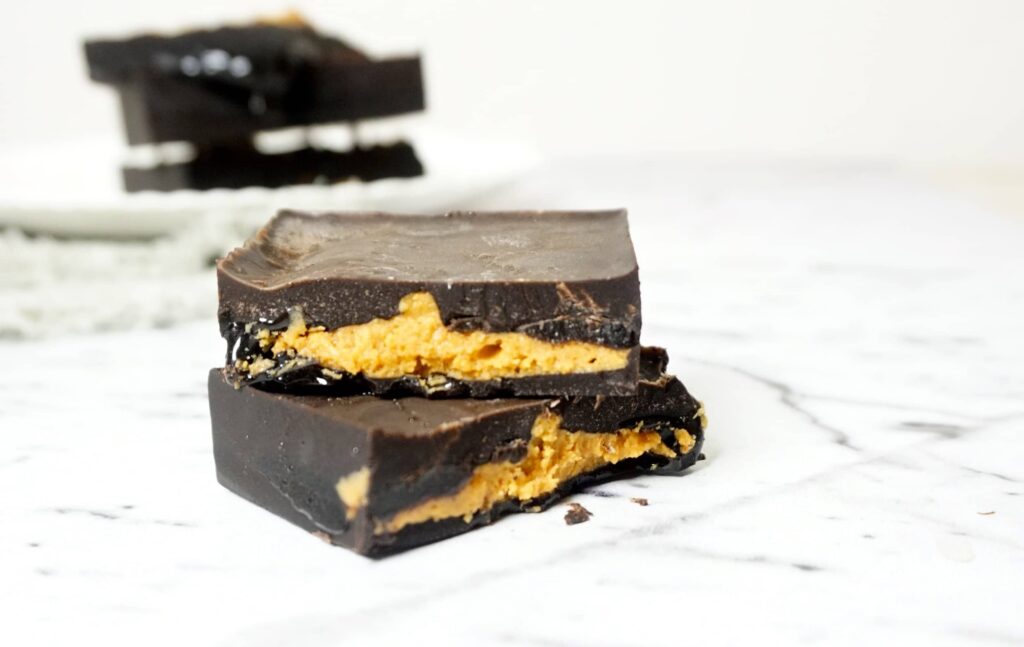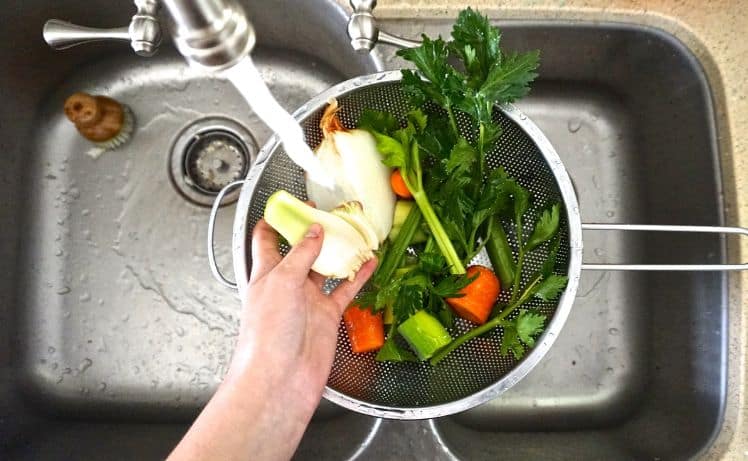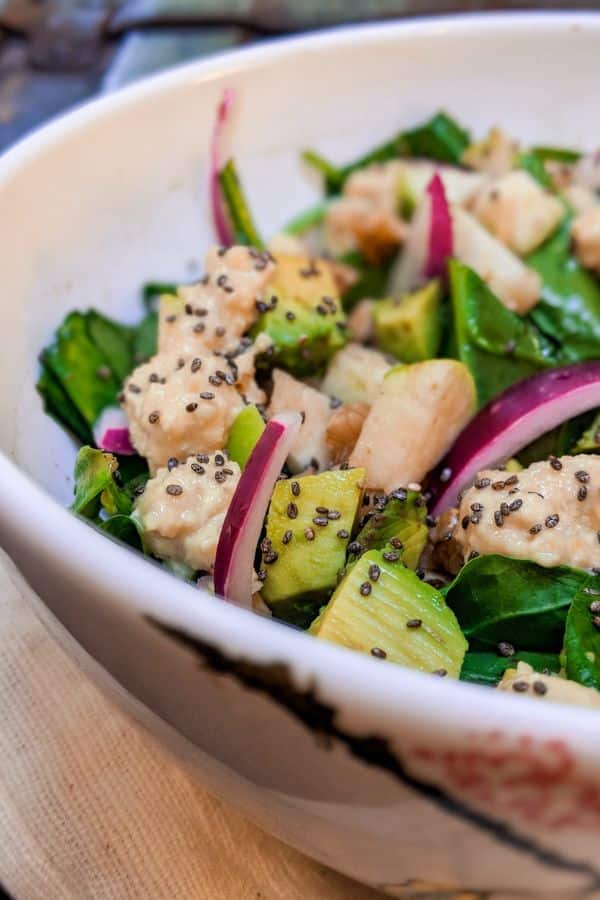Last updated: October 25, 2024
As you can imagine, I’m passionate about finding ways to reduce food waste at home. It’s a big part of my zero waste lifestyle and honestly, I love the challenge.
Needless to say, food waste is a major global issue with serious environmental impacts. Literally 1.3 billion tons of food ends up in the trash every year, contributing to ever-increasing greenhouse gas emissions and straining the planet’s resources.
Thankfully, there are ways to combat food waste with a little planning and a few sustainable recipes. By adopting zero-waste recipes in your kitchen, you can reduce waste and protect the environment.
Here are some zero waste recipe ideas to reduce food waste and support sustainability. From using leftover vegetables in a stir-fry to adding overripe bananas to bread, these sustainable recipes turn food scraps into delicious meals. There are many creative ways to cook consciously and have a positive impact on the planet. Get started with these zero-waste recipes.
What is a sustainable recipe?
Sustainable recipes are dishes that are created with the environment in mind. They are often made using food waste and locally sourced ingredients, making the most of every part of the ingredient to reduce food waste.
Many zero-waste recipes are plant-based, which is better for the environment than animal products (sorry, I said that!). Many people also encourage eco-friendly cooking methods, such as using energy-efficient appliances and conserving water.
Ultimately, sustainable recipes aim to benefit the environment while remaining delicious and nutritious. Find my favorite options below.
My favorite recipes to reduce food waste
1. Stir-fried leftover vegetables
I value simplicity, so I often make stir-fries. All you need to do is add the ingredients to a frying pan with oil or sauce and heat up. It’s so easy!
You can use any vegetables you have on hand, such as peppers, broccoli, and carrots. Place it in a frying pan with soy sauce over medium heat, and when it heats up, it’s ready. I like to serve stir-fries over rice or noodles to make them even more hearty. This zero waste recipe from one of my favorite bloggers, Zero Waste Chef, is my go-to on busy weeknights when I don’t feel like cooking.
2. Banana bread
Banana bread is one of those food waste-fighting recipes that everyone knows and loves. I personally make it at least once a month. This is the best way I know to use up overripe bananas…no matter how black and squishy the bananas are, I’d always rather have fresh banana bread than throw a perfectly delicious fruit in the trash. Choose.
This version from Minimalist Baker is also vegan and gluten-free.
3. Broccoli soup from root to stem
Don’t waste broccoli stalks. I often chop whole broccoli and use all the pieces in stir-fries or pasta dishes, but I think a lot of people tend to throw them away.
We also recommend using broccoli stems in soup! Sauté the onions and garlic until fragrant, then add the chopped broccoli stalks and vegetable broth to the pot. Simmer the mixture until the broccoli is tender and stir until smooth. Another very easy way to reduce food waste.
I always use this broccoli soup recipe from Smitten Kitchen and always use the whole head of broccoli, from root to stalk.
4. Stale bread croutons
This is a classic work that I have been making since my student days. One of my favorite zero-waste recipes: homemade croutons. There’s nothing better than fresh-from-the-oven croutons to accompany soups and salads. And they are very easy to make yourself.
Simply chop the stale bread into cubes and toss with olive oil, garlic powder, and your favorite herbs and seasonings. Spread the croutons on a greased baking sheet and bake at 375°F until golden and crisp.
The bloggers at 100 Days of Real Food have great recipes to follow.
5. Fruit peel infused water
Sustainable recipes mean nothing goes to waste. So you better believe I add the fruit skin (and other parts of the fruit that I usually throw away) to water to make a refreshing drink.
My favorites are citrus, cucumber peel, and strawberry tops. They provide flavor without added sugar or sweeteners and help reduce food waste. You can also add fresh herbs that have started to wilt. I love the combination of basil and orange, lemon and mint.
Ashley from Grocery Addict’s recipes are my go-to recipes when I’m out of ideas.
6.Vegetable scraps stock
This is also something I’ve been working on for years. Vegetable stock is easy to make from vegetable scraps and skins. All you need to do is select your favorite vegetables and place them in a pot of water. Bring the mixture to a boil and simmer for about 6 hours.
Homestead and Chill has some of my favorite recipes.
Frequently asked questions about food waste reduction
How can I make fresh food last longer?
Properly storing fresh foods can easily extend their shelf life. Store fruits and vegetables in crisper drawers, but try to have one fruit drawer and one vegetable drawer to prevent them from overripening. Store dairy and meat products in the coldest part of the refrigerator, and be sure to store leftovers in airtight containers. Beeswax wraps and silicone lids are your friend.
What are some tips for using up leftovers?
Get creative in the kitchen and make the most of your leftovers. There are many ways to turn them into new dishes. Stir-fries, casseroles, and salads are just a few examples. You can also use it as a pizza topping, sandwich filling, or incorporate it into a breakfast omelet or frittata. Use your imagination to create your own sustainable recipes. I run a weekly series on Instagram called “Scraptastic,” where you can transform wilted kale into pasta sauce, limp cucumbers into gazpacho, canned chickpea liquid into vegan royal icing, and more. We are shooting a video to introduce.
How can I plan my meals to reduce food waste?
Before you go to the store, check your fridge and cupboards to see what’s in there and plan your meals carefully. Creating a weekly meal plan or creating a shopping list can also be very helpful. Try to choose ingredients that can be used in a variety of meals. And when you go shopping, try to buy only what you need for the week. Not only will you reduce food waste, but you will also save money on groceries.








